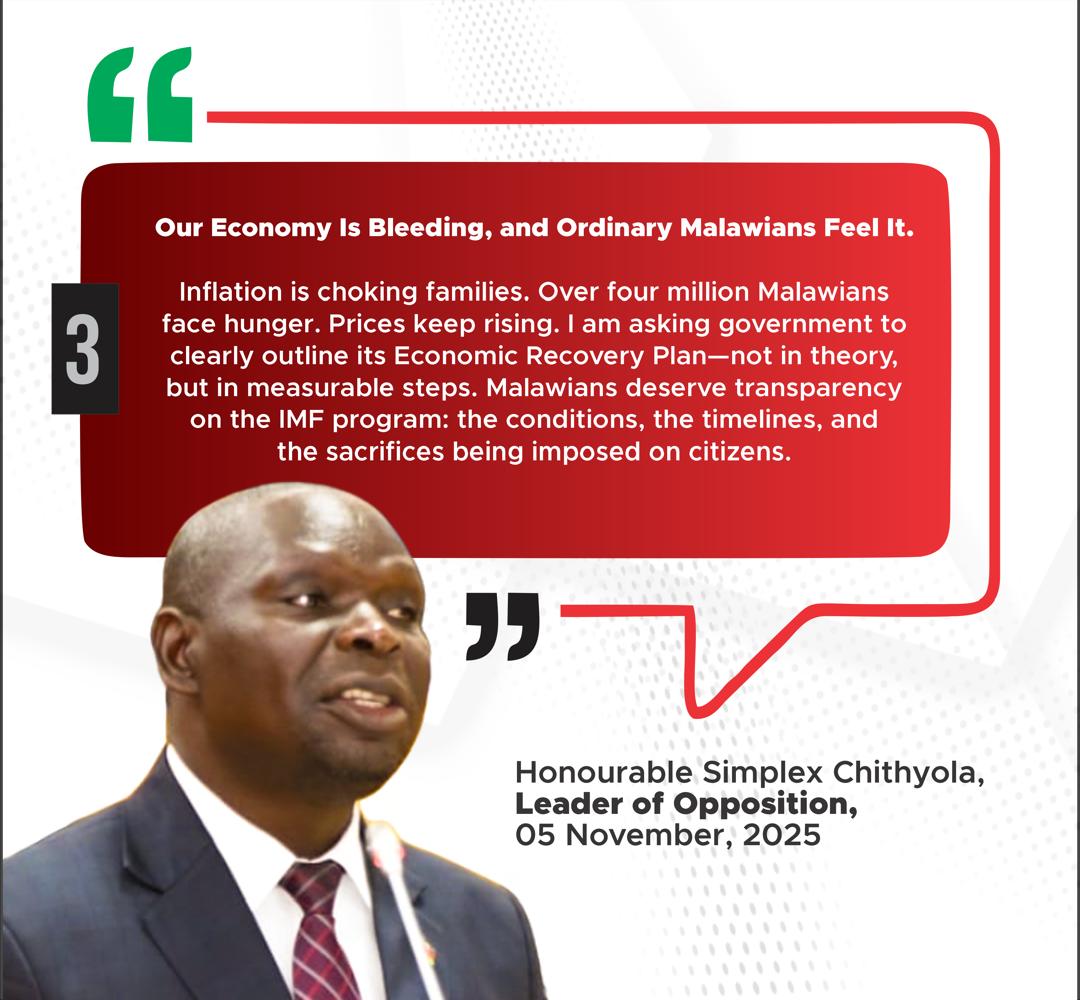
* Just four months ago, Simplex Chithyola Banda occupied the very office responsible for the economic decisions now suffocating Malawians
* When the public raised concerns about reckless borrowing, rising inflation, and opaque negotiations, he dismissed criticism
* When civil society asked for transparency in government spending, he defended the status quo. When others cautioned against the consequences of policy missteps, he remained unmoved
Op-Ed by James Kadyampakeni
Malawians have seen this script too many times — a leader remains silent while in power, only to find a loud voice once removed from office. Today, former Minister of Finance, Simplex Chithyola Banda — now seated comfortably in the opposition — has discovered the language of transparency and economic justice.
He is demanding that government explain inflation, hunger, and the terms of the International Monetary Fund (IMF) programme. He wants clarity; he wants accountability — he wants measurable steps.
The irony is striking.
Just four months ago, he occupied the very office responsible for the economic decisions now suffocating Malawians. When the public raised concerns about reckless borrowing, rising inflation, and opaque negotiations, he dismissed criticism.
When civil society asked for transparency in government spending, he defended the status quo. When others cautioned against the consequences of policy missteps, he remained unmoved.
Today, he speaks as though he were never part of the machinery that drove us into this crisis. If transparency matters now, why did it not matter then? If accountability is urgent today, why was it ignored yesterday?

Advertisement
Leadership is not demonstrated in press conferences or verbal antics in Parliament after leaving office; it is demonstrated while one holds power.
The current economic hardship did not fall from the sky. Under President Lazarus Chakwera’s administration, plunder became normalised, hidden under “reforms,” “emergency spending,” and “special contracts.”
Public funds disappeared through inflated procurement and unexplained forex leakages. Government entered into agreements whose conditions were never disclosed to citizens — yet the burden of sacrifice now rests squarely on their shoulders: soaring inflation, rising fuel costs, and unaffordable food.
While these decisions were being made, the then-Minister of Finance was not merely a bystander — he was part of the engine room. He signed off on numerous dubious deals. He justified. He defended.
His silence then, is why Malawians are suffering now.
It is politically convenient to speak truth when there is no personal cost. Courage would have been challenging these decisions inside Cabinet, not outside of it. Courage would have been choosing Malawians over political loyalty. Courage would have been transparency when he had the authority to act not now, when accountability costs him nothing.
Demanding answers now may make for good headlines, but it does not erase the decision to remain silent when the country needed caring and uncorrupt leadership.



Advertisement
Malawians are not asking for perfect leaders — they are asking for honest ones. Leaders who speak when it matters, not when it is convenient. Leaders who protect national interests not political legacies.
If accountability matters, it must begin with acknowledging the past, not rewriting it from the safety of the opposition bench. Here is a man, a former Minister of Finance, who only four months ago refused to listen or take advice.
When people raised concerns, he dismissed them with arrogance, convinced that he alone and his enabler Dr Chakwera understood the situation. Today, the very issues he ignored have come back full circle, and he has the audacity to be asking the government how they will deal with the mess he and his syndicate created.
* Dr. James Kadyampakeni is an Economic Policy Analyst, Sales & Marketing Development and Entrepreneurship Development expert based in Canada. For the past five years, he has authored various articles of advice for economic development of the country copied to the past government administration, which were not taken on board



Advertisement
